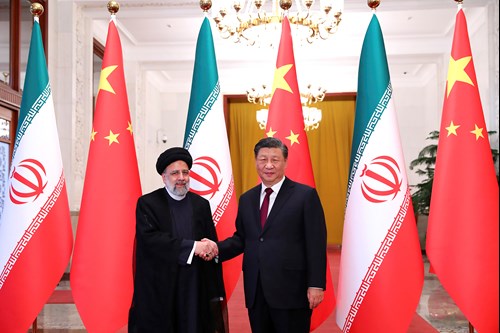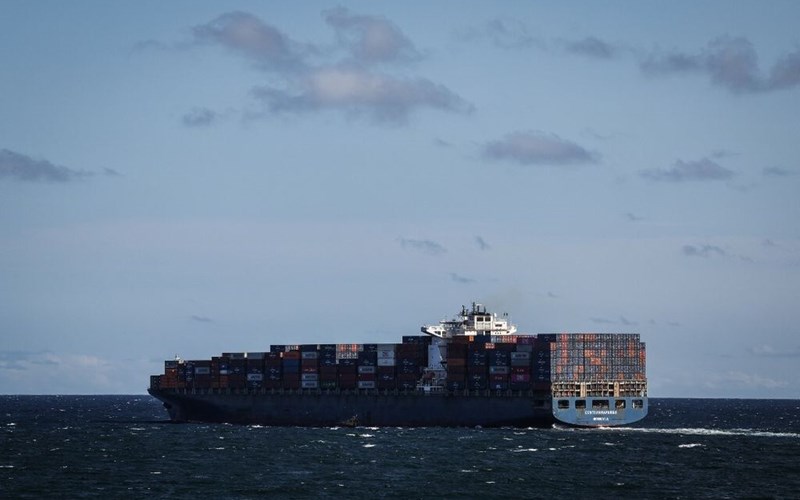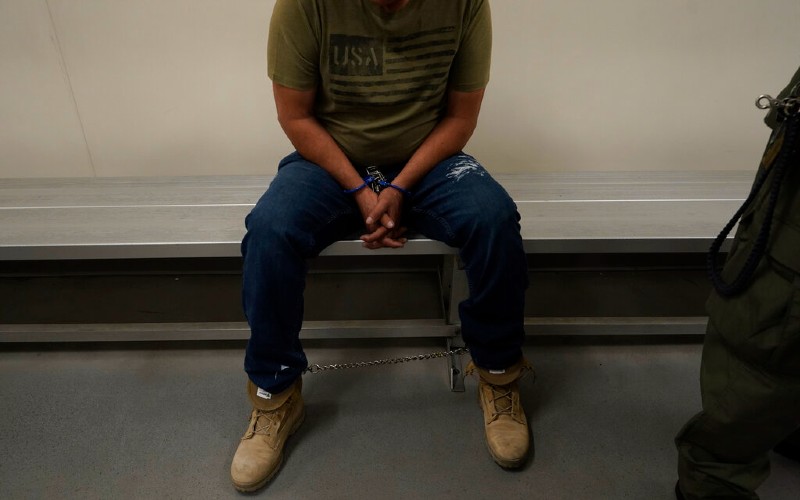The coalition will include at least 10 countries, Great Britain, France and Italy among them.
The coalition is weakened, however, by the absence of Egypt and Saudi Arabia who have declined to participate due to concerns in the Arab world about Israel’s continued bombing of Gaza and Washington’s support for Israel, Farea Al-Muslimi of the Chatham House thinktank told The Guardian.
This new partnership aside, some experts are puzzled by the lack of a forceful response by the U.S.
Billions of dollars in trade jeopardized
The Red Sea, with the Suez Canal at its northern tip, is one of the world’s most-utilized shipping channels, the preferred route from Asia to Europe.
Thirty percent of global container traffic and billions of dollars of traded goods and supplies make their way through the Red Sea annually.

Most attacks have focused on a narrow strait of water between Djibouti and Yemen near the southern tip of the Red Sea.
“Certainly, there's going to be economic impact on Egypt because about 10 percent of its gross domestic product are fees through the Suez Canal, and those are going to be way down. Europe is going to be especially impacted. It’s already in a fragile state,” Gordon Chang, the distinguished senior fellow at the Gatestone Institute, said on Washington Watch Wednesday.
Bypassing the Red Sea is difficult. The route around Africa adds about 12,000 nautical miles and 2-4 weeks to the journey depending on the ship.
Many in the U.S. remember supply chain issues during the COVID pandemic with ships lined up at ports, delays and shortages for a number of products, baby formula being among the most pressing then.
Most U.S. shipping does not pass through the Red Sea and the Suez Canal, Chang said.
“But nonetheless, it does affect globalization. The world is going to deglobalize because people are starting to understand that the skies and the seas are not safe,” he said.
Houthi attacks have come in the form of drones and missiles and have escalated since Israel’s response to the murderous attacks of Hamas terrorists on Oct. 7. They’ve not only disrupted maritime traffic but have also fired missiles at Israel.
Houthi terror on the seas could soon impact gas prices in the U.S. Last week BP announced it would not send tankers through the Red Sea until the situation improves.
The Houthis say they will not be deterred by the coalition.
Who are the Houthis?
The group emerged in north Yemen in the 1990s, a revival of the Zaydi branch of Shi’ite Islam which had once ruled Yemen but had become marginalized amide economic depression.
As it warred with Yemen’s Aden-based internationally-recognized government, the Houthis gained control over much of the country’s northern territory.
The Houthis numbered roughly 200,000 troops in 2021, according to ReliefWeb.net. They were backed by Iran in Yemen’s bloody civil war, as Saudia Arabia backed the established Yemen government. Though the Iranian government has denied the claims, Saudi Arabia accuses Iran of training, arming and funding the Houthis.
 The Houthis have gained strength while the U.S. has fed the impoverished Yemen population, Bob Maginnis, the Family Research Council’s senior fellow for national security, told Hice. The plight of the Yemens, he said, is one reason the Houthis haven’t been taken out by the U.S.
The Houthis have gained strength while the U.S. has fed the impoverished Yemen population, Bob Maginnis, the Family Research Council’s senior fellow for national security, told Hice. The plight of the Yemens, he said, is one reason the Houthis haven’t been taken out by the U.S.
“We haven't really responded to a certain degree because that is the poorest country in the entire region, and surprisingly perhaps, to some Americans, we feed them through the United Nations from U.S. taxpayer dollars," he advised.
Chang says Iran continues to play a central role in support of the Houthis and is able to do so because of China. China, he said, has been helping Iran since the Oct. 7 Hamas attack by purchasing sanctioned Iranian oil.
"So essentially what's going on here is that, yes, the Houthis are firing the arrows, but the arrows are coming from Iran, and China's paying for them," Chang summarized.
The U.S. meanwhile is looking weak, he said, because China is violating the sanctions without any response from the Biden administration.
Don’t disregard the Houthis

Maginnis says the Houthis should not be taken lightly. They are a Shia Islamic group supported by Iran, he said, so they operate as a proxy for Iran's ayatollahs just like Hezbollah and Hamas.
"What the Houthis have done, not only have they disrupted maritime traffic in the Red Sea and the Gulf of Aden, they’ve fired directly ballistic missiles into Israel 2,000 kilometers away," he said.







